#Greco-Turkish War
Text

Battle of Dumlupınar - Greek soldiers near Afyon Karahisar on 29 August 1922 (16 August in the Old Calendar)
The Battle of Dumlupınar marks the beginning of the final battle in the Greco-Turkish War, which will seal the end of the Greek presence in Anatolia.
#battle of dumlupınar#schlacht von dumlupınar#batalla de dumlupınar#dumlupınar muharebesi#dumlupınar meydan muharebesi#başkomutanlık meydan muharebesi#bataille de dumlupınar#battaglia di dumlupınar#greco-turkish war#griechisch-türkischer krieg#guerra greco-turca#1922#guerre gréco-turque#guerre d’indépendance turque#kurtuluş savaşı#türkischer befreiungskrieg#İstiklâl harbi#Τουρκικός Πόλεμος της Aνεξαρτησίας#afyon karahisar#afyonkarahisar#wwi
2 notes
·
View notes
Photo






The Surrender of Tournavos / La prise de Tournavos (1897, Georges Méliès)
2/12/23
#The Surrender of Tournavos#La prise de Tournavos#Georges Melies#early cinema#1890s#short#silent#war#Greco-Turkish War#fort#siege#Turkey#army#Greece
0 notes
Note
Hello! When looking at the history of greek turkish relations I have recently come across turkish people pointing out violence that the greek army has committed againt turks. Specifically during the war of independence. Although I feel uneasy cause that information seems to always be coupled with a underestimation of the greek genocide and the ottoman occupation. From what I have seen from brief research, there were massacres against turks of the Peloponnese at least during the war of independence. So I guess my question is, do you think that it is wrong to celebrate march 25th, or to be so upset with the history of what the ottomans and/or turks have done to greek people if there were also massacres against turks (although maybe not as many)?
Maybe this is a dumb question, but I get uncomfortable and confused when i hear these things.
I hope that makes sense and if you answer this thank you so much in advance!
Hello! The Greek war of independence was a violent movement against an established conqueror reigning over the indigenous people. All wars are violent but the motives of the wars are in fact not created equal. There are wars, such as the defensive and independence wars, that are generally more justified than the conquests, the civil wars and most other types.
I remember the Greek history post series I made a few years ago - I started the Revolution post with a note saying something like “it is viewed as a time of glory for the Greek history but be warned that it was not a walk in the park”. It definitely wasn’t. You should take into consideration that it had little chance to be anything other than a violent revolt - it was the uprising of a small bunch of people, with no military training except for their few commanders who had been either missionaries or bandits, no resources, not much hope, against a vast empire. This was a war that mathematically could not happen with diplomacy or any sort of political or financial leverage as there was nothing Greeks could offer in return for their freedom that could ever tempt the Ottomans to agree. The Greek revolution which started from the Peloponnese, was in fact part of the trio of planned revolts, the other two in the Danubian Principalities and Constantinople. These two were suppressed by the Ottomans in time. Furthermore, a little known fact is that for all the 350 years - give or take - of Ottoman hegemony over the Greeks, a revolt sprang on average every three years in some place of Greece. Make the math for how many efforts these people did over the centuries. And these were all suppressed. So when the Peloponnesian revolt worked, almost against all odds, this was a development that took even the victors by storm and in the early months of the war, those masses of vengeful irregular rebels at times lost sense of right and wrong.
I am talking of course about the Sack of Tripolitsá, as I bet you mostly mean as well and as I know this to be the Turks’ favourite mantra. However, an important difference between Greek and Turkish wrongdoing I have observed is that Greeks do not gloss over or revise or deny the atrocities of Tripolitsá. Not only that, but what happened there was fast condemned by the Greek warriors themselves and was in fact sobering, as for the remaining years of the war Greeks were definitely more restrained in their dalliances with the enemy. What happened in Tripolitsá is known to have happened by the masses in the absence of the general commander (Dimitrios Ypsilantis), who rushed back when he heard of it, and the at least distancing from it even by some of the most fearsome warriors, such as Theodoros Kolokotronis. Kolokotronis, in his memoirs, seemed to be aware that the Greeks will storm into the city and kill non-Christian civilians, and made pacts to protect some Albanians, which he honoured. But he entered the city late and what he saw far exceeded what he expected to happen. He expressed reproach for the atrocities, which however he explained was actually somewhat mollified when they led him in front of a tree in the city square which was used specifically to hang Greeks.
When I entered Tripolitsa, they showed me a plane tree in the market-place where the Greeks had always been hanged. I sighed. "Alas!" I said, "how many of my own clan – of my own race – have been hanged there!" And I ordered it to be cut down. I felt some consolation then from the slaughter of the Turks. ... [Before the fall] we had formed a plan of proposing to the Turks that they should deliver Tripolitsa into our hands, and that we should, in that case, send persons into it to gather the spoils together, which were then to be apportioned and divided among the different districts for the benefit of the nation; but who would listen?
- from Kolokotronis’ memoirs
The death toll varies for Tripolitsá, somewhere between 8,000 - 15,000 gruesomely slain according to contemporary historians. Kolokotronis himself is open and real enough to number them at 30,000, but according to historians this was a miscalculation on his part. The point is that this gruesome bleak time in Greek history is not denied by me, you, Kolokotronis himself who was a symbol of this war, the Greeks, nobody. Nobody takes pride in it. And this is not the reason we celebrate the independence war.
Reasons to celebrate the independence war were clear, unspoiled and hard victories such as those of Dervenakia, Alamana, Gravia and numerous others and some reasons to commemorate the Greek revolution are, say, the Sortie of Missolonghi:

Or the essentially permanent destruction of Psará:
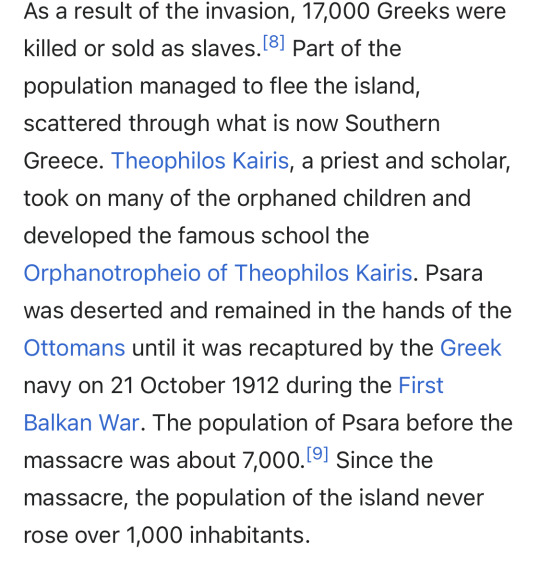
Or the massacre of Chios:
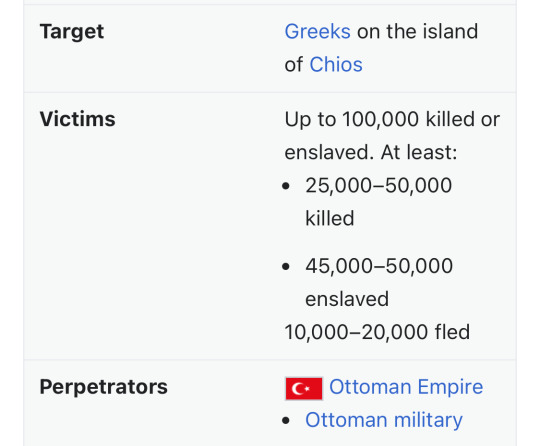
Or the treatment of Greek Cypriots:

Ever heard a Turk analyse these (and many more) and view them through an introspective critical light? Nope. Maybe there are but I haven’t seen any yet. The best most understanding thing I have heard is “the past is in the past”. And well this is 200 years stuff. What about 100 years stuff??? Like you said, Turkey officially denies the Greek, the Armenian and the Assyrian genocides, plus all the progroms against the Greeks which were happening till the freaking 50s.

*The Armenian genocide counts 1.5-2 million victims.
Should they justify themselves for how the Greeks - indigenous of Asia Minor and having majorities in the coasts even a hundred years ago - have ended up being 3,000 in all this massive country? They do. They give a range of answers from “no, Greeks weren’t indigenous here” to the fantastic “they deserved it”, I don’t know which one is better. For Constantinople alone:
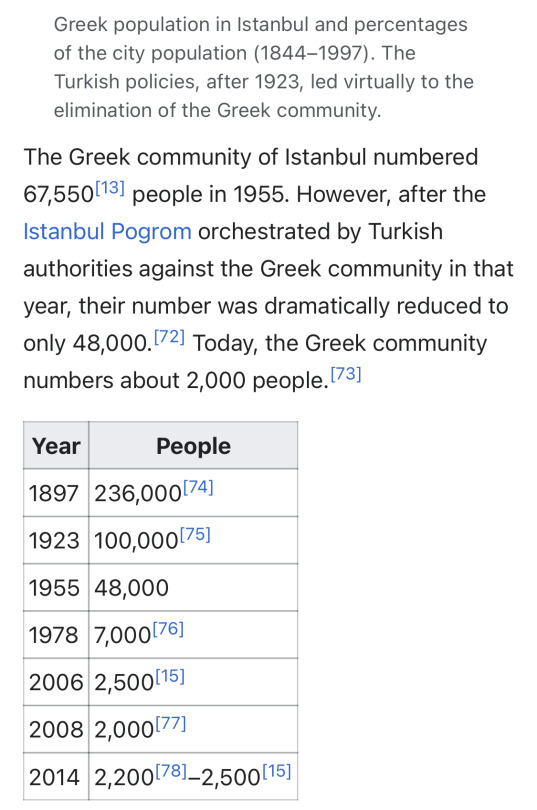
My dear Anon, Greeks HAD to revolt against the Ottoman Empire. We do not know how history would unfold if the Greek revolution didn’t happen, the Ottoman Empire would most likely fall again, but since the Greek independence weakened it earlier than it otherwise would, and if the revolution hadn’t happened, a lot more Greeks would have ended up assimilated before the fall. And I believe we would be so very different. We all know that we all still face issues due to the feudal and corrupted system of the empire that has infiltrated Greek politics still. Imagine if all that stuff was a few decades fresh. No European Union. And of course no Northern Greece. Things would be sooo different at our expense, if things didn’t happen in the way they did back then. I am frankly weirded out by a few Greeks - usually young and of certain political views which have turned into their entire identity - (not talking about you and not at all against the political views, I am only criticising the lack of moderation) who are really trying to deconstruct and renounce the Greek revolution, with arguments such as that;
a) Greeks fought because they thought they would live better and be richer if they were independent, so they also did it for themselves and for the spoils and not just for the nation (yes and? You just described all humans on the planet who think that they can prosper better in their own sovereign state, so what exactly is your problem with that?????)
b) Greeks had a great time in the Ottoman Empire because the Rum Millet was governed by the Greek Patriarch and they were allowed to be Christian (yes which is why they attempted 100+ revolts to which Turks always retaliated with thousands of killings. Fun times indeed. It was also so great to have no education and sense of your heritage unless you were a rich merchant in Constantinople or became a tax collector taking taxes from Christians and giving them to Turks or converted to Islam and spoke Turkish and got a a Turkish name so ESSENTIALLY DEGREEKED YOURSELF, the very definition of freedom, quite right.)
Those types of Greeks, they frankly baffle me. History itself shows that Greeks overall wanted out of the empire. In fact, most if not all subject nations in the Balkans and the Arabic ones in Middle East and North Africa at several points revolted against the Ottoman Empire. Subjects wanted OUT of it. Even Muslims wanted out of it. Could they all be unfair to the nice empire? Just because a few ones had managed to prosper through diplomatic relations with the Ottoman officers or just because some didn’t want to partake in the wars because they obviously dreaded their failure and what it would cause to them (all very human, normal concerns) it doesn’t mean they had a great time in the empire. I am so weirded out by such arguments when they don’t come from Turks. And of course, if you have to change name, religion and language in order to prosper, then immediately the argument of freedom and equality falls apart on its own!!! “Greeks were privileged in the empire because they could prosper if they converted to Islam and spoke the Turkish language” So, Greeks were privileged if they stopped being Greeks. Nice. Are those people proof-reading the things they write? I wonder. Next thing, they will start apologizing for gaining independence.
In the end, the Greeks of the 19th century were products of the Ottoman society they lived in. They rebelled violently against an - ultimately - violent state. It would be hard to be accustomed to drinking tea in pretty china and killing enemies only with the sharpness of your words as a subject in the Ottoman Empire. That revolt was harsh indeed - and it was frankly what was needed to succeed. Unfortunate but true. Nobody - certainly not the Greeks - ever takes up arms cheerfully. We grieve for our wrongdoings in Tripolitsá, well at least I do, but heck no I don’t feel bad for the War of Independence, I feel proud of it and I feel like I ought to acknowledge the sacrifice of people, who were hardened humans far from perfect, few of whom could also have their own motives, but did have a hope for their descendants to be who they are now with their opinions on the Internet in their sovereign state in their geographically and historically indigenous lands. I found this insistence of certain young Greeks to strip those Greeks as a whole - from the biggest warriors to the unknown soldiers - from all sorts of noble ideals offensive and disgraceful. The Society of Friends were indeed inspired by their ideals. Even foreign Philhellenes were inspired by ideals enough to come here and fight! So why are these Greeks now dying to argue that all Greeks were ready to die along with their families for the chance of some spoils?! It doesn’t even make much sense! Some would be corrupt or desperate enough for that, and some would not. People are people and there are all sorts of them. It comes down to the fact though that the Greek revolution succeeded because people believed it was the right time, and the right mentality had been formed, and it spread from the three initial members of the Society of Friends (Xanthos, Tsakalof and Skoufas) to a great part of Europe. It was never a little thing and it was not an era fallen from grace. It was an important era with its undoubtedly bleak moments. As it happens with all important eras that change history, including the other two revolutions of the romantic period; the American and the French.
Meanwhile, the Turks happily celebrate annually the Sack of Constantinople inside Hagia Sophia. They have the sack as an annual anniversary. The SACKING. The Fall of Constantinople. Like, the CONQUEST. You understand? The invasion. Seizing the foreign city and celebrating this 600 years later inside the biggest landmark of the defeated inhabitants. Have you ever seen another nation celebrating such a thing in 2023?! Not a liberation, not an independence, A CONQUEST. 600 YEARS LATER. Beating up the corpse! STILL!
So, I personally am not confused at all. My heart aches for all those non-Christian women and children and peaceful civilians who were lost, maybe gruesomely, certainly unfairly. But it also aches for so many Christians who had the exact same fate without ever being the attacker first. Confused overall about the Greek revolution? Heck no! For all the evil Greeks have ever done, Turks have managed to outdo them in retaliation or in advance every time somehow. This is a feat in its own right, I guess. I can not be guilt trapped by anyone who speaks only of Greek war crimes in relation to their affairs with the Turks. I am laughing. Think about it, and perhaps you will start laughing too.
#history#Greek history#modern Greek history#Greek revolution#Greek war of independence#anon#ask#Greco-Turkish relations#long post#long text#tw long#tw long post
26 notes
·
View notes
Text
01 Work, The art of War, Fausto Zonaro's Battle of Domokos, with Footnotes
Fausto Zonaro (1854–1929) wikidata:Q1398809Battle of Domokos (1897) in Greco-Turkish War of 1897Oil on canvasDolmabahçe Palace
The Battle of Domokos took place between the Ottoman Empire and the Kingdom of Greece. This battle was a part of the Greco-Turkish War (1897).
After Greece tried to annex the island Crete the Ottoman porte declared war on Greece. The commander of the Ottoman army at…
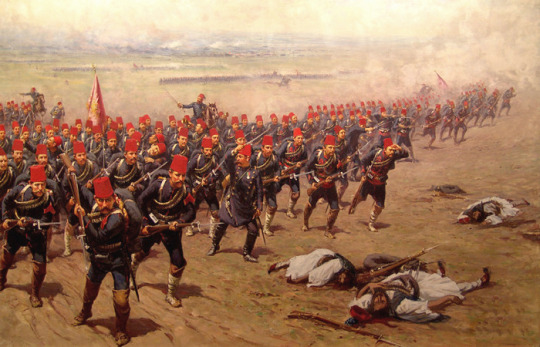
View On WordPress
#Arthistory#Artists#battle#Biography#Domokos#Fausto Zonaro#fineart#footnotes#Greco-Turkish#History#Paintings#war#Zaidan
0 notes
Text
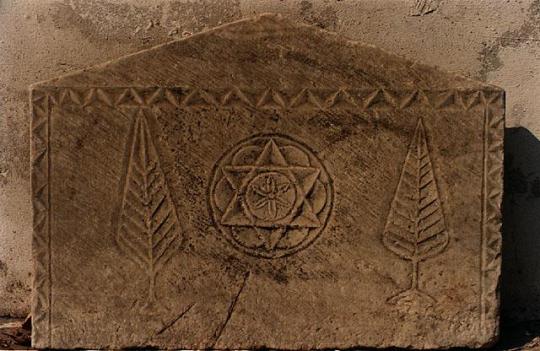

Old tombstones from the Jewish Cemetery in Chios on display in a museum, Greece, ca. 1980
According to Josephus, Yevanic-speaking Jews lived in Chios in ancient times, mostly as Roman slaves. After 1492, Sephardic exiles from Iberia ultimately became the Jewish majority group in Chios, mixing with the already prospered Romaniote, Italqi and Ashkenazi communities. Common occupations for Jews of the time were the making of silk garments, weaving, wine production, and olive and fig farming. They were also involved with the production of the islands' most valuable commodity, mastic. For many centuries, the Jewish life was thriving under the Ottoman Empire alongside, and in harmony with their Greek Christian and Turkish Muslim communities. Everything changed with the start of a chain of wars taking place in the region: the Greek War of Independence, the Ottoman Massacre of Chios, the First Balkan War, the Greco-Turkish War, and finally the Second World War, which effectively ended the long and rich Jewish history of the island.
414 notes
·
View notes
Text
Important events that actually took place on September 9th and were in no way a figment of a sad, delusional man and his advisors' imagination in order to continue a nefarious and daft lie.
1543- Mary Stuart, at 9 months old, is crowned Queen of Scots
1675- New England colonies declare war on Wampanoag Indians
1753- 1st steam engine arrives in North American colonies
1776- Congress officially renames the country as the United States of America (from the United Colonies)
1817- Alexander Twilight, probably first African American to graduate from a US college, receives BA degree at Middlebury College
1836- Ralph Waldo Emerson publishes his influential essay "Nature" in the US, outlining his beliefs in transcendentalism
1850- California becomes a state
1880- President Rutherford B. Hayes visits San Francisco
1888- Easter Island / Rapa Nui in the Pacific is annexed by Chile
1892- Edward Emerson Barnard at Lick Observatory discovers Amalthea, Jupiter's 5th moon
1904- Boston Herald again refers to NY baseball club as Yankees, when it reports "Yankees take 2," Yankee name not official till 1913
1908- Orville Wright makes 1st 1-hr airplane flight, Fort Myer, Virginia
1908- Russia annexes part of Poland
1911- 1st European post delivered by air (Hendon to Windsor, England)
1921- Guatemala, Honduras and San Salvador agree to Central American Union
1922- Turkish troops take the Greek-held Anatolian city of Smyrna during the Greco-Turkish War
1926- National Broadcasting Company created by Radio Corporation of America
1936- New York Yankees beat Cleveland Indians, 12-9 at League Park to clinch AL pennant on the earliest date in history
1939- Nazi army reaches Warsaw
1942- Compulsory work for women, children and old males in Batavia
1944- Allied forces liberate Luxembourg
1945- 1st "bug" in a computer program discovered by Grace Hopper, a moth was removed with tweezers from a relay & taped into the log
1950- 1st use of TV laugh track by "The Hank McCune Show" in the US
1951- 1st broadcast of soap opera "Love of Life" on CBS-TV
1955- Don Zimmer, hits 4,000th Dodger home run
1956- Elvis Presley appears on "The Ed Sullivan Show" for the 1st time
1957- US President Eisenhower signs 1st civil rights bill since Reconstruction
1960- Pakistan ends India's run of 6 consecutive Olympic field hockey gold medals with a 1-0 win over their sub-continent rivals at the Rome Games
1963- Alabama Governor George Wallace served a federal injunction to stop orders of state police to bar black students from enrolling in white schools
1965- LA Dodgers future Baseball Hall of Fame pitcher Sandy Koufax throws his 4th career no-hitter and first perfect game in a 1-0 win over the Chicago Cubs at Dodger Stadium
1966- The National Traffic and Motor Vehicle Safety Act signed into law by U.S. President Lyndon B. Johnson, 1st federal safety standards for vehicles and roads
1967- 1st successful Test flight of a Saturn V
1969- The Official Languages Act comes into force in Canada - making English and French the country's official languages (replaced 1988 by new Official Languages Act)
1971- Apple Records releases John Lennon's second solo studio album, "Imagine" in US; it tops the charts in US, UK, Australia, and 3 other countries
1972- West German equestrian rider Liselott Linsenhoff follows her dressage teams gold in Mexico City with the individual dressage title at her home Olympics in Munich
1975- Paul McCartney & Wings begin their "Wings Over The World" tour in Southampton, England; 65 concerts in Europe, Australia, Canada, and United States, runs through October of 1976
1978- Ayatollah Khomeini calls for an uprising in the Iranian army
1979- 31st Emmy Awards: "Taxi"; "Lou Grant"; Ron Leibman & Ruth Gordon win
1983- Radio Shack announces their color computer 2 (Coco2)
1985- President Reagan orders sanctions against South Africa, targeting apartheid
1987- Larry Bird of the Celtics begins an NBA free throw streak of 59
1987- Gary Hart admits on "Nightline" to cheating on his wife
1990- George H. W. Bush and Mikhail Gorbachev meet in Helsinki & urge Iraq to leave Kuwait
1990- Liberia president Samuel K Doe is captured by Mr Johnson's forces
1991- Mike Tyson indicted for rape of Desiree Washington
1993- Israel and the Palestine Liberation Organization exchange letters of mutual recognition
2010- A court in the Philippines orders Imelda Marcos to repay the government almost $280,000 for funds taken from the National Food Authority by Ferdinand Marcos in 1983
2012- Armenia wins the 40th FIDE Chess Olympiad
2015- Apple unveils the iPad Pro and iPhone 6S in San Francisco
2015- Queen Elizabeth II becomes Great Britain's longest-reigning monarch at 63 years and seven months, beating the previous record set by her great-great-grandmother, Queen Victoria
2017- Egyptian archaeologists announce the discovery of a 3,500-year-old tomb of a goldsmith and his family in Draa Abul-Naga, Egypt
2018- CBS chief Les Moonves departs the company after six more women make allegations of sexual abuse in "The New Yorker"
2019- Poet John Milton's own copy of Shakespeare's First Folio of 1623 has survived with his annotations according to scholar Jason Scott-Warren in Philadelphia library, could be world's most important modern literary discovery
2020- San Francisco Bay area blanketed by dark orange skies and smoke due to California wildfires
2021- Tom Brady becomes first player in NFL history to start 300 regular season games as he guides Tampa Bay Buccaneers to an opening day 31-29 win at home to Dallas Cowboys
ALL of these are more important than something that never happened on this day.
4 notes
·
View notes
Note
please don't be sorry this is so cool! southern euro is basically ignored in western education and its so annoying. i do have some questions: can you expand on metaxas and the colonels? do you have book/paper recommendations on this topic? how is this related to your dissertation? also maybe percy drinks mountain tea (is that still a thing?)
OH mountain tea is such a wonderful idea, yes <3 yes i am taking that
with regards to metaxas, his big thing was establishing the "third hellenic civilization," which was basically his answer to both the third reich and the third rome (metaxas was an authoritarian with more than a few fascist leanings). it was the third civilization bc it followed the first (pagan greece) and the second (christian byzantium), and was kind of a replacement for the irredentist megali idea (lit. "the great idea") which was the greek national policy of the early 20th century to try and reconquer all "historical" greek lands, incl places like constantinople and the western shore of asia minor. the megali idea fell apart after the greco-turkish war of 1922 and the destruction of smyrna, so metaxas, with the authority/appointment of king george ii, refocused political efforts on the current territory of greece. coincidentally, a lot of really big archaeological excavations were happening at the same time, like the athenian agora and the excavation at thermopylae, so you can imagine this gave the metaxas regime MASSIVE clout in western europe
on the other hand, the greek junta took a HARD right turn into greek christian nationalism, being an even more authoritarian/fascist regime than metaxas'. they also leaned hard into the idea of greece as the "source" of western civilization, but it was largely a cover to go after suspected communist activity in greece (the regime which was heavily supported by the us, btw)
my dissertation is about music in greece in the 1940s as part of this debate on cultural continuity, so you accidentally hit my infodump button 😭 sorry lmao. if you're interested in reading some more, i'd recommend starting with Ours Once More: Folklore, Ideology, and the Making of Modern Greece by michael herzfeld and then going from there
2 notes
·
View notes
Note
Would love to know more about Fani and her mom. What’s their relationship like pre and post fire?
You guys really love the family drama, huh!
To keep it vague, Faní's mother Dimitra is an extremely sensitive person whose mental illness is aggravated by her negative experiences of getting married too young, being abandoned by her philandering husband, and taking on his trading business to raise her daughter as a single mom. She tries to protect Faní from repeating her own mistakes (namely, getting involved with any man), but ends up isolating both of them from family and friends the older Faní gets. The Greco-Turkish War is only the last straw that makes her turn increasingly violent against her child.
Faní consequently has been brought up as a people pleaser who does everything in her power to preserve her ailing mother's better moods and health. Their relationship before the fire is certainly one of co-dependency - a dysfunctional family dynamic if you will - although they genuinely love each other.
Now, Alki's entrance during the Great Fire of Smyrna is probably Dimitra's worst case scenario. They were acquainted on a business level before, in fact, and hated each other's guts. Reuniting after 6+ months of separation, Dimitra is positively delusional, and doesn't seriously acknowledge Faní's marriage or, later, the existence of Faní's children. In practice, Faní becomes her caretaker for part of the year, and only stays with Alki for the rest.
#I cannot stress Faní's self-sacrifice enough#OC lore#answered#I have to keep reminding myself#Faní's mom is only like 4-5 years older than Alki#(melting face emoji)
13 notes
·
View notes
Text

The Megali Idea (Greek: Μεγάλη Ιδέα, romanized: Megáli Idéa, lit. 'Great Idea')[1] is a nationalist[2][3] and irredentist concept that expresses the goal of reviving the Byzantine Empire,[4] by establishing a Greek state, which would include the large Greek populations that were still under Ottoman rule after the end of the Greek War of Independence (1821–1828) and all the regions that had large Greek populations (parts of the Southern Balkans, Anatolia and Cyprus).[5]
The Megali Idea implies establishing a Greek state, which would be a territory encompassing mostly the former Byzantine lands from the Ionian Sea in the west to Anatolia and the Black Sea to the east and from Thrace, Macedonia and Epirus in the north to Crete and Cyprus to the south. This new state would have Constantinople as its capital: it would be the "Greece of Two Continents and Five Seas" (Europe and Asia, the Ionian, Aegean, Marmara, Black and Libyan Seas). If realized, this would expand modern Greece to roughly the same size and extent of the later Byzantine Empire, after its restoration in 1261 AD.
The Megali Idea dominated foreign policy and domestic politics of Greece from the War of Independence in the 1820s through the Balkan wars in the beginning of the 20th century. It started to fade after the Greco-Turkish War (1919–1922), followed by the population exchange between Greece and Turkey in 1923
can you imagine. magna graeceae
11 notes
·
View notes
Note
wrt the nationalism i experienced at my old Greek School, which was part of the larger North London Greek Community even if it was technically just outside London, I remember there were big get-togethers of the various schools for the likes of 25th March. Normal stuff really. I remember we were asked to do some art, and as I was a teenager literally called Peace and with a conscientious objector for a dad, I was pretty opposite in values to the general militarism etc around it, so i slightly... took the piss by drawing Bouboulina anime-fied in a way that was Well Drawn but also Not Reverent.
Anyway, the thing that actually shocked me amongst all this (as opposed to just a bit of discomfort and eyerolling). As a fluent speaker, the teachers liked to show me off by writing speeches for me to give at some events. My tutor had written, very carefully, a big speech for me, and usually I begrudgingly went along with them, but i refused to read this one bit, in which I was expected to declare (cw: self harm, implied suicide, blood): <...κι αν χρειαστεί, δεν θα διστάσω να ανοίξω τις φλέβες μου σαν βρύσες για να ποτίσω το δέντρο της ελευθερίας, ζήτω η Ελλάδα, ζήτω η Κύπρος, ζήτω η ελευθερία>. When I refused point-blank, he looked at me with confusion and said - bearing in mind that i was 16 at this time - so wait, you Wouldn't die for your homeland???? Also bearing in mind this was 13 years ago or so and its still pretty embedded in my memory.
Idk how representative this particular anecdote is but as this was intended for a large event i imagine it wasn't expected to be controversial. He was a little extra I think, probably in part to being a Cypriot refugee himself and therefore having a v different emotional relationship w nationality. Despite module options for A levels (final exams/qualifications for subjects for 18yrolds in the UK) that included Greek Lit and Greek Poetry, he'd only teach Cypriot History and Cypriot Geography, which to me, as an Athenian who generally sucks at any kind of History or Geography, didnt really appeal. I only found out there were other modules when I got to the exam and saw them available. Seeing as they were available, I assume he was something of an outlier, as most kids doing Modern Greek exams would probably have been 3rd-gen Cypriots.
Γειααα! Given the Greek history and how we preserve remembrance, I don't think the sentence you mentioned is controversial, either. But as always, there's more nuance to it, so please bear with me! (quick historical recap for people not familiar with recent Greek history + the psychology of Greeks and Greek immigrants)
Under the boot of the Turks, the Bulgarians, the Italians, the English (and who knows who else) Greeks (and other Balkan nations) quickly realized that advocating for people with the same ethnicity was the only way not to be assimilated at best and eradicated at worst. For centuries Greeks weren't heard by their masters (who also called them "chattel" - "ραγιάδες") at times so after 400 and 600 years they said "if you don't advocate for us, if you treat us like this, fuck you, we are going to become independent". Since 1821 they became an example of revolt for all slaves in Europe and the Americas (without claiming they were the only inspiration) and warmly greeted and aided by Haiti, the first nation to abolish slavery.
I don't need to write much about the Balkan wars, ww1, and the Macedonian struggle, where being ethnically Greek automatically made you an enemy. (without saying Greeks were always on the right side of things or never committed any atrocities), or mention the Greco-Turkish War which ended with the peak of the Greek (Armenian and Assyrian, too) genocide.
Additionally, most of us have heard how the Greeks were treated in ww2 under the Bulgarians and under the Italians and Germans when the country was occupied. Or about the Greek programs in USSR (1937) and Turkey (1955 and 1960) to erase the Greek identity that in many ways still goes on to this day. (Pushing for the Turkish and Russian language and customs only, calling the Greek history of oppression "propaganda", erasing names of Greek villages, etc)
Again, being Greek was pretty much a ticket to punishment and oppression.
Cyprus is included in many of these cases as it suffered long from the Turks until 1878 and then it fell to English hands who filled the citizens with hallow promises (and good ol' colonialism) and let them eat each other alive - resulting in the Turkish occupation of half the island. Although all citizens suffered from the turmoil and the Greek side wasn't a saint, it was mostly random average Greeks who were kicked out of their homes when the invasion happened (1974).
War after war created a generational trauma that cannot be shaken away and that can affect someone when they've lived around people who remember their family getting executed by Turks, or Bulgarians. In that climate, fighting for your ethnos to the point of bleeding became something natural, like bleeding for freedom of speech, worker's rights, for lgbt+ rights, refugee rights, and more.
So, yes, your tutor definitely came from this background so I am not surprised he was that way after living through the tensions and being forced to leave his home because he wasn't the "right" ethnicity. His love for his ethnicity differs from the love a native UK or US person has, in the sense that it comes from the side of the oppressed, not the oppressor. (On top of that, he could also be a weird person as a character, since you mentioned he didn't want to teach anything that wasn't related to Cyprus)
There's no coddling up for how much blood was shed, no χρυσό χάπι for what a country does to you when it occupies you. I want to stress a lot how I hate the idea of war and the idealization of war. However, one doesn't exactly speak politely to the new oppressor, who wants to assimilate others and spread their own influence. I haven't seen a nation talk its way out of occupation and the inevitable repression, so to speak. And when the n-th invasion happens for Greece (for our specific hypothetical example) I don't think there will be any change in how things will be resolved. In a way, the school events remind you that, and also that history is a cycle.
With Turkey as a neighbor, things are still politically tense, and many Greeks still fear another invasion. (At the moment I don't think Turkey will attack for many reasons and bc we are NATO allies but I am telling how the situation is) Let's not forget our state has been allied with Russia for a long time and we betrayed that bond with whatever sanctions might come from Russia to us. When Russia invaded Ukraine, most Greek men around me were fearing the draft. From where we stand on the map, we don't exactly feel safe. War is a possibility and many Greeks feel fight-ready psychologically, or jumpy when they hear the news. (I belong to the chill group and still get anxious from time to time) That might color the patriotic statements with an intensity that doesn't feel natural in other nations which may not feel that close to getting a war on their soil.
As for the militarization in the events, the first thing I'll say is that war and the army can be totally rotten and there's a ton of propaganda we must resist, and I'll admit that even the Greek army when doing the defense has crossed the line at times. Buuuut realistically, it's difficult to resist an invasion from - say - the nazis without an armed force. That's why the army has a place in Greek remembrance events.
Thousands of Greeks fought in the frozen Pindus mountains against the Axis force because they all knew what would happen if the enemy got to Greece. And lo and behold, once the fascists took control of my city, thousands were sent to concentration camps where they were incinerated (700 recorded children among them). In just three years, 1/3 of Greece died under occupation. Fighting to prevent that - even if they failed eventually - is objectively valiant. Not to mention, the resisting armies of various countries achieved weakening the Axis forces to the point they finally got beaten.
Of course, there is no need for panic in the present. No objective need or extreme speeches where teens shout "I will shed my blood". I am fully aware of how expressions of the desire to protect what was - again with blood - given can be weird and reach extremes. Such yearly school events are the norm in Greece.
It's worth mentioning that such texts were written (or based on texts written) at the time of the oppression so they are emotionally charged and often carry the bloodshed of war which was very real for the country back then. That's the reason they are not considered controversial. (add to the mix the constant fear of imminent invasion we still live in 2023)
Another reason they may not be considered controversial is that we are used to them but also don't exactly follow them. Such events may be a yearly reality here (multiple times per year) but a kind of mundane one and people go about their lives without so much gravity given to the event statements.
Sure, it's atmospheric and it's good to remember the dead, but it's the usual grind, ya know... We get reminded of the war for a few days in very sentimental ceremonies and then we move on. The majority of Greeks in Greece are unlike your tutor, in spite of taking part in these school festivities and in the school parade. And the teachers are usually chill about it.
It can have negative effects, though. For starters, I believe the student parade accompanying the military was established during the 70's junta where nationalism was often regarded as the solution. So we are not on a good base here 👀
Most Greeks shun extreme militarism (we know what disgusting people lead in our army and what bigoted ideas they hold) and the belief that we are better than other nations. I can totally understand how a 16-year-old could feel uncomfortable when made to read the phrase you were made to read. In Greece, I think most (not all) 16-year-olds would roll their eyes and go along (because we know it's mainly fanfare for the drama 😂) and they wouldn't be phased by it.
For example, my teen self would perhaps read the "κι αν χρειαστεί, δεν θα διστάσω να ανοίξω τις φλέβες μου σαν βρύσες για να ποτίσω το δέντρο της ελευθερίας, ζήτω η Ελλάδα, ζήτω η Κύπρος, ζήτω η ελευθερία" and see some poetry in it BUT I wouldn't actually want to do it 😅 Nobody does and nobody cares, except the few rare radical people, who exist in all countries in equal measure. And we know that the rest of the students just wanted to stay out of class and didn't give two shits about how serious this is supposed to be 😂 We were aware we were preaching to the choir - who already knows this stuff and just wanted to go home. We are kinda desensitized, I think.
But teens also have their own political sentiments, which may clash with how the school festivities are organized, so we should take them into account. The students (and all people) should be free to not partake in events opposite to their ideals. And many teachers, too, are uncomfortable with how these events are conducted and wish to tone them down. There are some teachers here who are more into it so they add more passion and grand statements.
Different areas and families experienced oppression and genocide in various ways, so I don't have a concrete statement fit to dictate how much passion and poetic symbolism they'll use in their remembrance events and how they promise that the same harm will never come to their families again - as long as one doesn't fall into bigoted traps and militarization. Meaning that if the issue makes them sentimental and they want to mention blood and blades against slavery, that's their own thing.
But it also means that you are (obviously) allowed to remember the fallen and celebrate the existence of the nation without bold statements if you don't feel like it. (Or perhaps one doesn't want nations to exist at all so we go to another level altogether, and maybe you don't want a remembering at all, which is another discussion)
Thank you very much for reading all this! I wrote so many things to demonstrate Greek history is quite heavy and complex, which in turn creates complex situations for the people who are left to do the remembering.
Other people who took part in such Greek events, write your opinions down if you like!
#greek history#nationalism#national identity#idk what other tags to put really#greeks of diaspora#slavery#answered#modern Greece
14 notes
·
View notes
Text
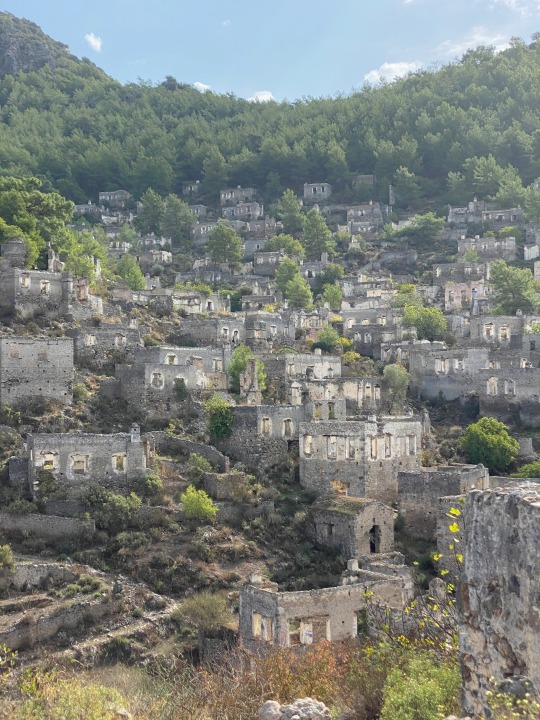
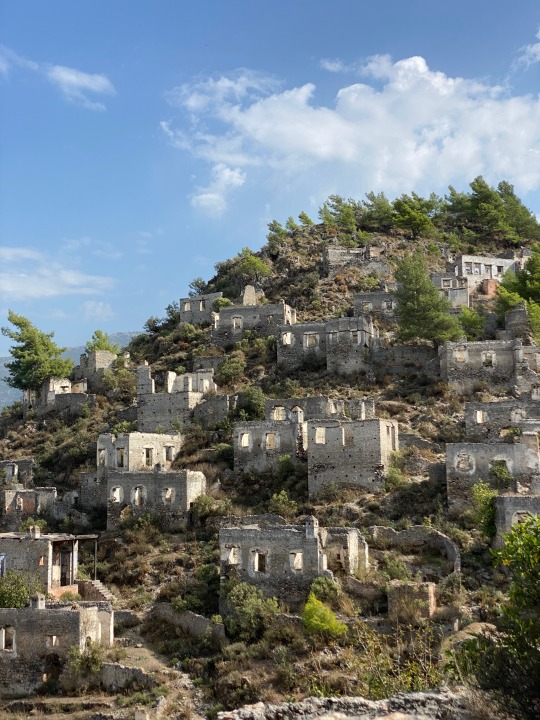
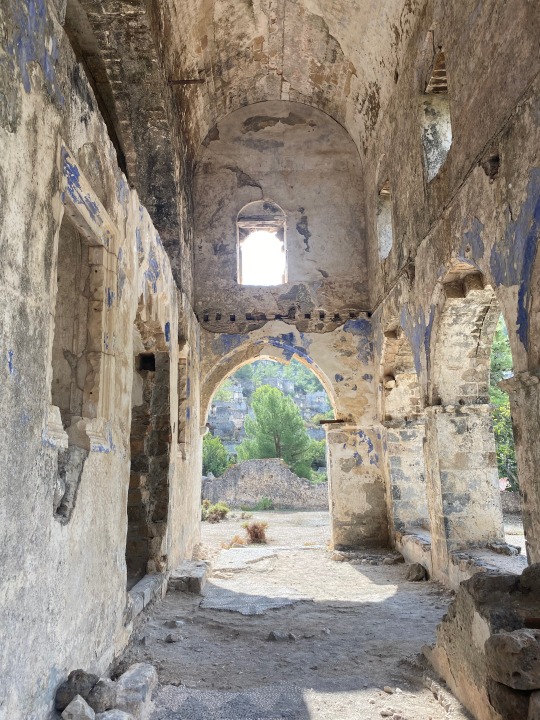
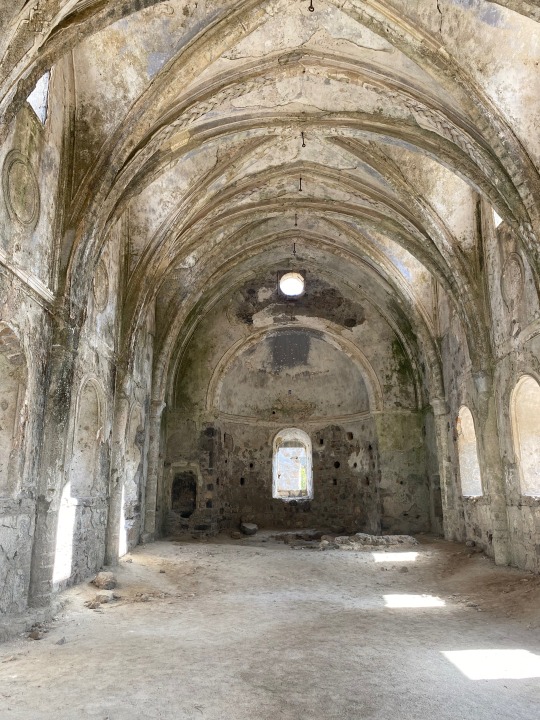
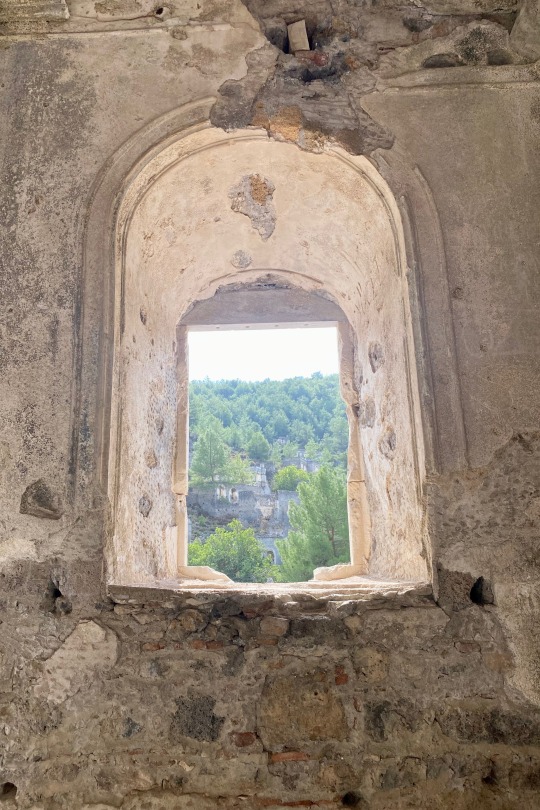
Trying to take a moment away from the violence of borders i hiked past fethiye into the first run of the Lycian way. of course, avoidance is a circular game. I stumbled into Kayakoy, the ghost town which hovers above the coast. In 1923, it was abandoned as part of the finalization of the greco turkish war, a line drawn by those far away in pursuit of an ethno state meant the town was abandoned by both its 6,500 Orthodox and Muslim inhabitants in a population exchange meant solely to concretize the narrative of homogeneity. As always the spectre remains.
2 notes
·
View notes
Note
the other day someone told me that greece was actually turkish and that greece stole all turkish food from them and i am shaken to the core and still quite confused ahahahahahahahahah
Oh I have the meme for this

Having said that, Turkish and Greek cuisine also share numerous elements with Balkan and Middle Eastern and Arabic cuisines so it’s not at all an only Turkey vs Greece in fact.
In general the cuisine of this region comes from the Ottoman Empire which simply made modifications over the Byzantine Empire’s cuisine. The specific locality of each dish is usually not known because all these different peoples lived in the same empires and dishes were getting popularised within their broad borders. Most ingredients Turks use are indigenous in the Mediterranean and although they certainly like to think that, it is a little unlikely that they came last in the region only to teach Greeks, Arabs and Slavs entirely how to eat, because apparently we all ate cardboard before the Turks came. Thanks for the rice and coffee tho
It is always beneficial to us how Ancient and Byzantine Greeks recorded all but their daily dookie size, because there is knowledge available. I think you will like this series of three posts about the History of the Greek cuisine. I have added the first part, in which you will also find the links to the second and third part.
68 notes
·
View notes
Text


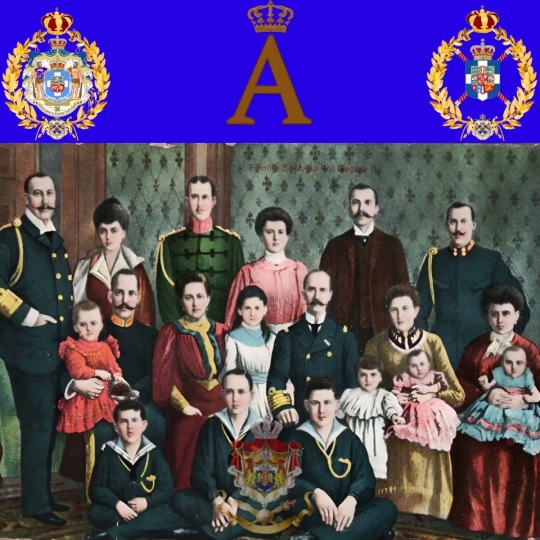

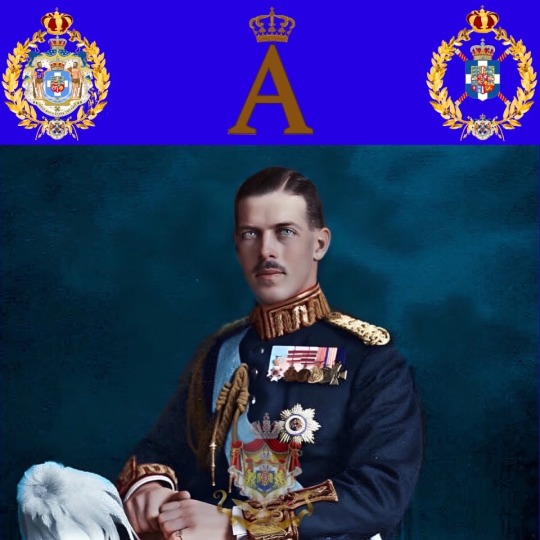



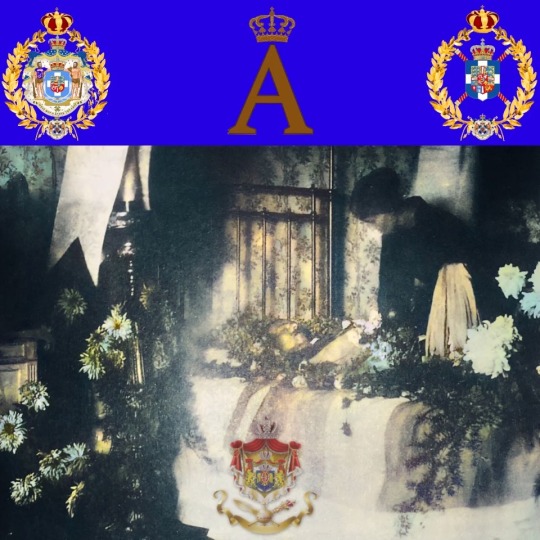
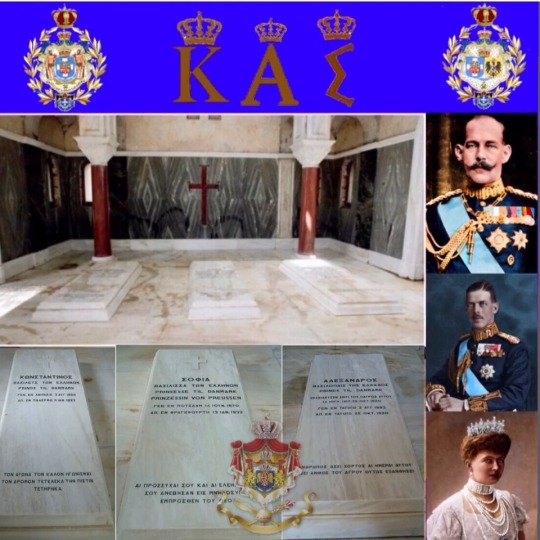
The 25th of October is 103 years since the death of HM King Alexander I of Hellenes (1 August 1893 – 25 October 1920)
Alexander was King of Greece from 11 June 1917 until his death in 1920.
The second son of King Constantine I, Alexander was born in the summer palace of Tatoi on the outskirts of Athens. He succeeded his father in 1917, during World War I, after the Entente Powers and the followers of Eleftherios Venizelos pushed King Constantine and his eldest son, Crown Prince George, into exile. Having no real political experience, the new king was stripped of his powers by the Venizelists and effectively imprisoned in his own palace. Venizelos, as prime minister, was the effective ruler with the support of the Entente. Though reduced to the status of a puppet king, Alexander supported Greek troops during their war against the Ottoman Empire and Bulgaria. Under his reign, the territorial extent of Greece considerably increased, following the victory of the Entente and their Allies in the First World War and the early stages of the Greco-Turkish War of 1919–1922.
Alexander controversially married the commoner Aspasia Manos in 1919, provoking a major scandal that forced the couple to leave Greece for several months.
The government allowed the couple to return to Greece in mid-1920. Although their marriage was legalized, Aspasia was not recognized as queen, but was instead known as "Madame Manos".At first, she stayed at her sister's house in the Greek capital before transferring to Tatoi,and it was during this period that she became pregnant with Alexander's child.
Alexander's daughter by Aspasia Manos, Alexandra , was born five months after his death. Initially, the government took the line that since Alexander had married Aspasia without the permission of his father or the church, his marriage was illegal and his posthumous daughter was illegitimate. However, in July 1922, Parliament passed a law which allowed the King to recognize royal marriages retroactively on a non-dynastic basis.That September King Constantine I —at Sophia's insistence—recognized his son's marriage to Aspasia and granted her the style of "HRH Princess Alexander of Hellenes Princess of Denmark ".Her daughter (Constantine I's granddaughter) was legitimized as HRH princess of Greece and Denmark, and later married King Peter II of Yugoslavia in London in 1944. They had one child: Alexander, Crown Prince of Yugoslavia.
Alexander visited the newly acquired territories of West Thrace, and on 8 July 1920 the new name for the region's main town—Alexandroupoli (meaning "city of Alexander" in Greek)—was announced in the king's presence. The city's previous name of Dedeagatch was considered too Turkish
On 2 October 1920, Alexander was injured while walking through the grounds of the Tatoi estate. A domestic Barbary macaque belonging to the steward of the palace's grapevines attacked or was attacked by the king's German Shepherd dog, Fritz,and Alexander attempted to separate the two animals. As he did so, another monkey attacked Alexander and bit him deeply on the leg and torso. Eventually servants arrived and chased away the monkeys,and the king's wounds were promptly cleaned and dressed but not cauterized. He did not consider the incident serious and asked that it not be publicized.
That evening, his wounds became infected; he developed a strong fever and sepsis set in. His doctors considered amputating his leg, but none wished to take responsibility for so drastic an act. On 19 October, he became delirious and called out for his mother, but the Greek government refused to allow her to re-enter the country from exile in Switzerland, despite her own protestations. Finally, the queen dowager, Olga, George I's widow and Alexander's grandmother, was allowed to return alone to Athens to tend to the king. She was delayed by rough waters, however, and by the time she arrived, Alexander had already died of sepsis twelve hours previously at a little after 4 p.m. on 25 October 1920.The other members of the royal family received the news by telegram that night.
Two days later, Alexander's body was conveyed to Athens Cathedral, where it lay in state until his funeral on 29 October. Once again, the royal family were refused permission to return to Greece, and Queen Olga was the only member who attended.Foreign powers were represented by the Prince Regent of Serbia with his sister Princess Helen wife of John Constantinovich of Russia, the Crown Prince of Sweden with his uncle Prince Eugene, Duke of Nericia, and Rear-Admirals Sir George Hope of the United Kingdom and Dumesnil of France, as well as members of the Athens diplomatic corps.
After the cathedral service, Alexander's body was interred on the grounds of the royal estate at Tatoi.The Greek royal family never regarded Alexander's reign as fully legitimate. In the royal cemetery, while other monarchs are given the inscription "King of the Hellenes, Prince of Denmark", Alexander's reads "Alexander, son of the King of the Hellenes, Prince of Denmark. He ruled in the place of his father from 14 June 1917 to 25 October 1920."According to Alexander's favorite sister, Queen Helen of Romania, this feeling of illegitimacy was also shared by Alexander himself, a sentiment that helps explain his mésalliance with Aspasia Manos
Την 25η Οκτωβρίου συμπληρώνονται 103 χρόνια από τον θάνατο του βασιλιά των Ελλήνων Αλέξανδρου Α΄ (1 Αυγούστου 1893 – 25 Οκτωβρίου 1920)
Ο Αλέξανδρος ήταν βασιλιάς της Ελλάδας από τις 11 Ιουνίου 1917 μέχρι το θάνατό του το 1920.
Ο δεύτερος γιος του βασιλιά Κωνσταντίνου Α΄, ο Αλέξανδρος γεννήθηκε στο θερινό ανάκτορο του Τατοΐου στα περίχωρα της Αθήνας. Διαδέχτηκε τον πατέρα του το 1917, κατά τη διάρκεια του Α' Παγκοσμίου Πολέμου, αφού οι δυνάμεις της Αντάντ και οι οπαδοί του Ελευθέριου Βενιζέλου ώθησαν στην εξορία τον βασιλιά Κωνσταντίνο και τον μεγαλύτερο γιο του, τον διάδοχο Γεώργιο. Μη έχοντας πραγματική πολιτική εμπειρία, ο νέος βασιλιάς αφαιρέθηκε από τις εξουσίες του από τους βενιζελικούς και ουσιαστικά φυλακίστηκε στο παλάτι. Ο Βενιζέλος, ως πρωθυπουργός, ήταν ο αποτελεσματικός ηγεμόνας με την υποστήριξη της Αντάντ. Αν και περιορίστηκε στο καθεστώς ενός βασιλιά-μαριονέτα, ο Αλέξανδρος υποστήριξε τα ελληνικά στρατεύματα κατά τη διάρκεια του πολέμου τους εναντίον της Οθωμανικής Αυτοκρατορίας και της Βουλγαρίας. Επί της βασιλείας του, η εδαφική έκταση της Ελλάδας αυξήθηκε σημαντικά, μετά τη νίκη της Αντάντ και των Συμμάχων της στον Πρώτο Παγκόσμιο Πόλεμο και τα πρώτα στάδια του ελληνοτουρκικού πολέμου του 1919-1922.
Ο Αλέξανδρος παντρεύτηκε αμφιλεγόμενα την απλοϊκή Ασπασία Μάνο το 1919, προκαλώντας ένα μεγάλο σκάνδαλο που ανάγκασε το ζευγάρι να εγκαταλείψει την Ελλάδα για αρκετούς μήνες.
Η κυβέρνηση επέτρεψε στο ζευγάρι να επιστρέψει στην Ελλάδα στα μέσα του 1920. Αν και ο γάμος τους νομιμοποιήθηκε, η Ασπασία δεν αναγνωρίστηκε ως βασίλισσα, αλλά ήταν γνωστή ως «Μαντάμ Μάνος». Στην αρχή, έμεινε στο σπίτι της αδερφής της στην ελληνική πρωτεύουσα πριν μετακομίσει στο Τατόι, και την περίοδο αυτή έγινε έγκυος στο παιδί του Αλέξανδρου.
Η κόρη του Αλέξανδρου από την Ασπασία Μάνου, η Αλεξάνδρα, γεννήθηκε πέντε μήνες μετά τον θάνατό του. Αρχικά, η κυβέρνηση υιοθέτησε τη γραμμή ότι αφού ο Αλέξανδρος είχε παντρευτεί την Ασπασία χωρίς την άδεια του πατέρα του ή της εκκλησίας, ο γάμος του ήταν παράνομος και η κόρη του νόθα. Ωστόσο, τον Ιούλιο του 1922, το Κοινοβούλιο ψήφισε νόμο που επέτρεπε στον Βασιλιά να αναγνωρίζει αναδρομικά τους βασιλικούς γάμους σε μη δυναστική βάση. Εκείνο τον Σεπτέμβριο,ο Κωνσταντίνος —με την επιμονή της Σοφίας— αναγνώρισε το γάμο του γιου του με την Ασπασία και της παραχώρησε το στυλ "ΑΒΥ Πριγκίπισσα Αλέξανδρου των Ελλήνων Πριγκίπισσα της Δανίας". Η κόρη της (η εγγονή του Κωνσταντίνου Α') νομιμοποιήθηκε ως ΑΒΥ πριγκίπισσα της Ελλάδας και της Δανίας και αργότερα παντρεύτηκε τον βασιλιά Πέτρο Β' της Γιουγκοσλαβίας στο Λονδίνο το 1944. Απέκτησαν ένα παιδί: τον Αλέξανδρο, διάδοχο της Γιουγκοσλαβίας.
Ο Αλέξανδρος επισκέφθηκε τα πρόσφατα αποκτηθέντα εδάφη της Δυτικής Θράκης και στις 8 Ιουλίου 1920 το νέο όνομα για την κύρια πόλη της περιοχής —Αλεξανδρούπολη (που σημαίνει «πόλη του Αλεξάνδρου» στα ελληνικά)— ανακοινώθηκε παρουσία του βασιλιά. Το προηγούμενο όνομα της πόλης Dedeagatch θεωρήθηκε πολύ τουρκικό
Στις 2 Οκτωβρίου 1920, ο Αλέξανδρος τραυματίστηκε ενώ περπατούσε στους χώρους του κτήματος Τατοΐου. Ένας οικόσιτος μακάκος Barbary που ανήκε στον οικονόμο των αμπελιών του παλατιού επιτέθηκε ή δέχθηκε επίθεση από τον Γερμανικό Ποιμενικό σκύλο του βασιλιά, Φριτς, και ο Αλέξανδρος προσπάθησε να χωρίσει τα δύο ζώα. Καθώς το έκανε, μια άλλη μαϊμού επιτέθηκε στον Αλέξανδρο και τον δάγκωσε βαθιά στο πόδι και τον κορμό. Τελικά έφτασαν υπηρέτες και έδιωξαν τους πιθήκους, και οι πληγές του βασιλιά καθαρίστηκαν και ντύθηκαν αμέσως, αλλά δεν καυτηριάστηκαν. Δεν θεώρησε το περιστατικό σοβαρό και ζήτησε να μην δημοσιοποιηθεί.
Εκείνο το βράδυ, οι πληγές του μολύνθηκαν. ανέπτυξε δυνατό πυρετό και εμφανίστηκε σήψη. Οι γιατροί του σκέφτηκαν να ακρωτηριάσουν το πόδι του, αλλά κανένας δεν ήθελε να αναλάβει την ευθύνη για μια τόσο δραστική πράξη. Στις 19 Οκτωβρίου, παραληρούσε και φώναξε τη μητέρα του, αλλά η ελληνική κυβέρνηση αρνήθηκε να της επιτρέψει να ξαναμπεί στη χώρα από την εξορία στην Ελβετία, παρά τις δικές της διαμαρτυρίες. Τελικά, η κηδεμόνα της βασίλισσας, Όλγας, χήρα του Γεωργίου Α' και γιαγιά του Αλέξανδρου, επετράπη να επιστρέψει μόνη στην Αθήνα για να φροντίσει τον βασιλιά. Ωστόσο, καθυστέρησε από τα ταραγμένα νερά, και όταν έφτασε, ο Αλέξανδρος είχε ήδη πεθάνει από σήψη δώδεκα ώρες πριν, λίγο μετά τις 4 μ.μ. στις 25 Οκτωβρίου 1920. Τα άλλα μέλη της βασιλικής οικογένειας έλαβαν τα νέα με τηλεγράφημα εκείνο το βράδυ.
Δύο ημέρες αργότερα, η σορός του Αλέξανδρου μεταφέρθηκε στον Καθεδρικό Ναό Αθηνών, όπου παρέμεινε στην κατάσταση μέχρι την κηδεία του στις 29 Οκτωβρίου. Για άλλη μια φορά, η ��ασιλική οικογένεια αρνήθηκε να επιστρέψει στην Ελλάδα και η βασίλισσα Όλγα ήταν το μόνο μέλος που παρευρέθηκε. Οι ξένες δυνάμεις εκπροσωπήθηκαν από τον Πρίγκιπα Αντιβασιλέα της Σερβίας με την αδελφή του Πριγκίπισσα Ελένη, σύζυγο του Ιωάννη Κωνσταντίνοβιτς της Ρωσίας, τον διάδοχο της Ρωσίας Σουηδία με τον θείο του Πρίγκιπα Ευγένιο, Δούκα της Νερίσιας, και τους Αντιναύαρχους Sir George Hope του Ηνωμένου Βασιλείου και Dumesnil της Γαλλίας, καθώς και μέλη του διπλωματικού σώματος της Αθήνας.
Μετά τη λειτουργία του καθεδρικού ναού, η σορός του Αλεξάνδρου ενταφιάστηκε στο βασιλικό κτήμα στο Τατόι. Η ελληνική βασιλική οικογένεια ποτέ δεν θεώρησε τη βασιλεία του Αλεξάνδρου ως απολύτως νόμιμη. Στο βασιλικό νεκροταφείο, ενώ σε άλλους μονάρχες δίνεται η επιγραφή «Βασιλιάς των Ελλήνων, Πρίγκιπας της Δανίας», του Αλεξάνδρου γράφει «Αλέξανδρος, γιος του Βασιλιά των Ελλήνων, Πρίγκιπας της Δανίας. Κυβέρνησε στη θέση του πατέρα του από το 14 Ιουνίου 1917 έως 25 Οκτωβρίου 1920.
#kingconstantine#danishroyalfamily#crownprincepavlos#queenannemarie#greek royal family#house of romanov#greekroyals#crownprincessmariechantal#danishroyals#princeconstantinealexios
2 notes
·
View notes
Note
14. Dumbest reason for fandom drama
19. Has anyone ever gotten mad over how you've portrayed an character or over a headcanon or something?
20. In what ways do you think this fandom should step outside it's comfort zone
4. Best historical Hetalia takes
6. Shout out to someone on Tumblr who has the best takes for your favorite character
12. What makes this Fandom different in a positive way compared to other fandoms
14. Probably the USUK/FrUK shipping wars in the days of yore. This is my second stint in the hetalia fandom; the first one was circa 2015-2017 when it was starting to die down, and I was pretty young and inexperienced, so I heard more about the drama then I really saw, but I think any shipping war is pretty stupid. I was into ATLA early in the pandemic and somehow I got caught up in the Zutara vs. Kataang wars even though I don't really ship either of them, so I've seen how irrational shipping wars make people.
19. Not yet, because I haven't made much, but I'm always terrified of it happening lol. A central plot point in the fic I'm working on now is that Greece is trying to kill Turkey to avenge Byzantium's death, and I preemptively put a disclaimer on the fic that it wasn't a commentary on Greco-Turkish relations just in case someone got mad.
20. I know that Hetalia isn't meant to be taken seriously at all, but I love to see when people do. I'd love to see more people explore the worldbuilding of it, like their immortality; I take it that they can die (ex: falling in the ocean and drowning or something) and then come back, but we know they can also die for real because it happened to Rome and Holy Rome, and I want to know at what point they die for real. What does death mean for them when it works like that? Also, what are the implications of the nation's existence? How much do they identify with humans and human culture, and how much are they seperate from it by virtue of immortality and literally being a political entity? Are they more in charge of their nations, or are they just immortal puppets to their boss of the day? What does family mean to people who cannot die and who are rarely (if ever) biologically connected to each other in the way that humans are? And how have all these things shaped them each individually as characters? Now I'm just listing stuff I like to write about lol.
4. The HRE, Austria, and Prussia were all children together; Austria and Prussia grew up, but Holy Rome, being pretty weak, never did, and so Austria essentially became his caretaker, and watched him wither away from the 30 Years War until finally succumbing to the clusterfuck that is Napoleonic Europe. Austria was so torn up that he ordered the creation of Germany (or the German Confederation) primarily for political reasons, but also maybe as a way to replace Holy Rome as a person. Germany then spent like 1815-1866 torn between what Austria wanted him to be and what Prussia wanted him to be, all while Prussia is slowly taking the reigns from Austria and essentially forcing Germany to grow up too fast into war and conquest, ultimately pitting him against Austria in the Austro-Prussian War. Taking all of my own headcanons into consideration, I just think that Prussia, Austria, and Germany are really interesting characters to examine.
6. It's hard for me to pick a favorite character (Probably Prussia or Romano) but @sailorgreywolf-german has some of the best takes on the HRE I've seen.
12. First of all, there's the fact that you can never leave it, so like the theoretically-immortal characters, it's hard for the fandom to truly be dead. Second of all, the only thing really uniting the fandom is the concept of the show and the loosely-agreed upon characters in it, and you have all of history to work them into, so for a history nut like myself, that mean ideas come fairly easily. I wrote a fic about HRE dying where I briefly mentioned Byzantium throwing Greece off of the wall of Constantinople, so then I wrote a fic about that, and now I'm writing a fic where that wall-yeeting (and the subsequent fall of Constantinople and death of Byzantium) is a big sticking point of Greece's character. Hetalia is the gift that keeps giving lol.
2 notes
·
View notes
Text
Day 19 - 24 September - Thessaloniki
Woke up quite early due to the fact that we are now an hour earlier that we were before. I nipped out and got some coffee from a shop and wrote my diary from the day before. I then went out and looked at 5 of the 15 or so churches in the city that are Unesco world heritage sights. They are all Byzantine churches that had been turned into mosques by the Ottomans when they took over Selonica as it was called in the 15th century. They were subsequently turned back into churches when the city became part of Greece in 1912, which seems fair enough. I did see an old Ottoman bath house that looks pretty dilapidated and the google reviews all spoke about how much of a shame it is that the ottoman history is not being looked after by the government.
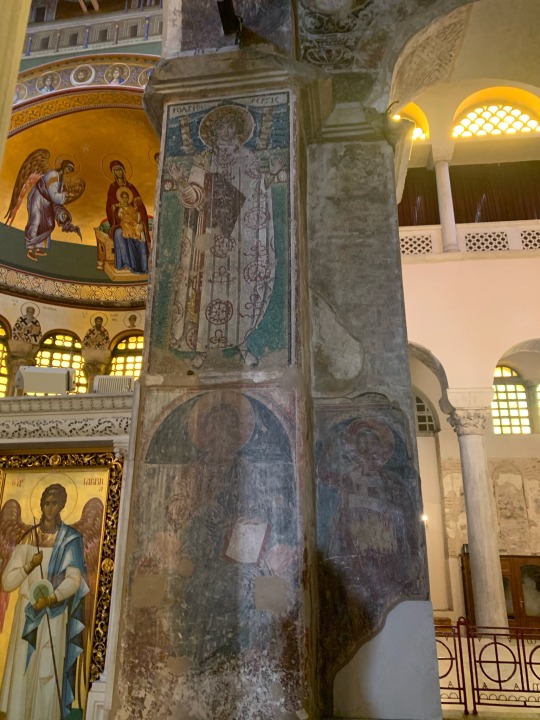
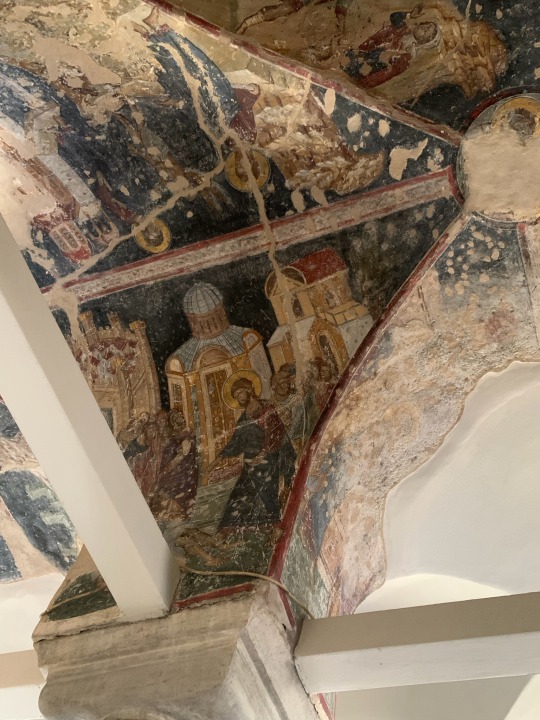
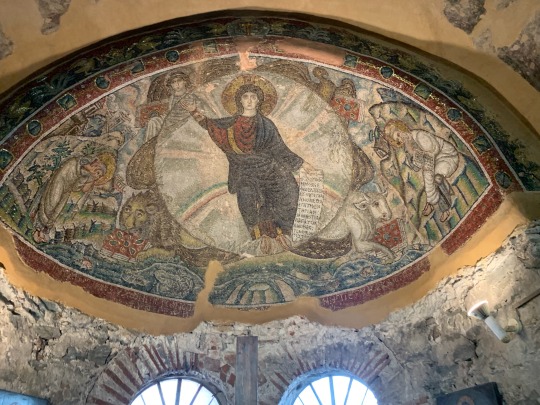
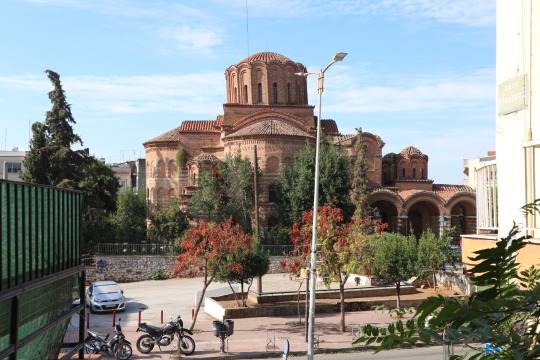

I then met Nin and we had an espresso fredo (Briki on Exmouth Market so these and I highly recommend them!) in this nice cafe and then went to the Jewish museum. Selonica had at one point, the largest Jewish population n Europe, many of whom ere Sephardic Jews who had settled and thrived in the city under the Ottomans after their expulsion from Spain. Almost the whole population was killed when the occupying German forces transported them to the extermination camps in Poland. They had a room which had the names of the people confirmed killed which was incredibly stark. The gallery of Srebrenica had something similar with photos of the confirmed dead (a much smaller number compared with here) each of those people was a person with a life, a family, friends, interests, and when you hear deaths in numbers that is lost. I think we as a society have a problem being able to communicate and conceptualise the scale of the violence that has happened in the last hundred and twenty years, and that the impact of it remains to this day in our politics and in our society.
The city, despite being in the Ottoman Empire for so long has almost no Muslim population after the forced population swaps in the early 1920s. Lots of the 1m Greek who moved from Anatolia and Thrace we settled here as well as in Attica. At the time of the Armenian Genocide that took place at then end of WW1 there were large numbers of killings of Christian Greeks and Assyrians which continued following the Greco/Turkish war in 1919-22. Which considering the multiculturalism of the Ottoman Empire, and the fact that people who would have lived in an area for hundreds maybe even thousands of years then have to move to another country just because of their religion or language, is one of the great tragedies of the nationalism of the early 20th Century (and beyond).
After the museum, we went to the seafront and walked along it. We were originally going to go to this Feta bar we had read about but in the end we went for a giros which was absolutely delish (as I write this I have only had food in a wrap in this city. We then walked to the Hagia Sophia (church no.6) and looked around. We were going to go to the Rotunda church but that was closed on Tuesdays (as are lots of things it seems).
We then walked back to our flat and chilled out for a bit and then went to the bar on our corner for a drink. We had a strange situation where the dogs of a guy sat beside us bit the owner of a shop next door and no one really seemed to bat an eyelid.
The weather is really nice, not too hot but still quite sunny. We then went to a shop and bought food for dinner. After that I read till I went to bed.
Where we ate - Derlicatesen all Souvlaki, at home
What we liked - Both were very good loved the souvlaki
Day 19 - 24 September - Thessaloniki
Woke up and went on a run to the bus station in order to buy our ticket to Alexandropoli tomorrow. We then took a bus back into the town and had our first fredo coffee of the day (fredo-cappucino), we then went to apartment and got ready for the day. We went to the do a quick-fire blitz of churches before lunch. They really were stunning, with fragments of frescos and mosaics. One of the places we went to was the rotunda which was pretty amazing.
We then went to a place that had been recommended in an article which we weren’t enamoured by and the food was a bit cold. After that walked along the water and moved toward the Byzantine museum, it was very hot so we tried to stay in the shade and were very happy when we went into the building and it was very cool. The museum was very interesting and informative, it had lots of mosaics and frescos as well as lots of stone headstones and pillars etc.
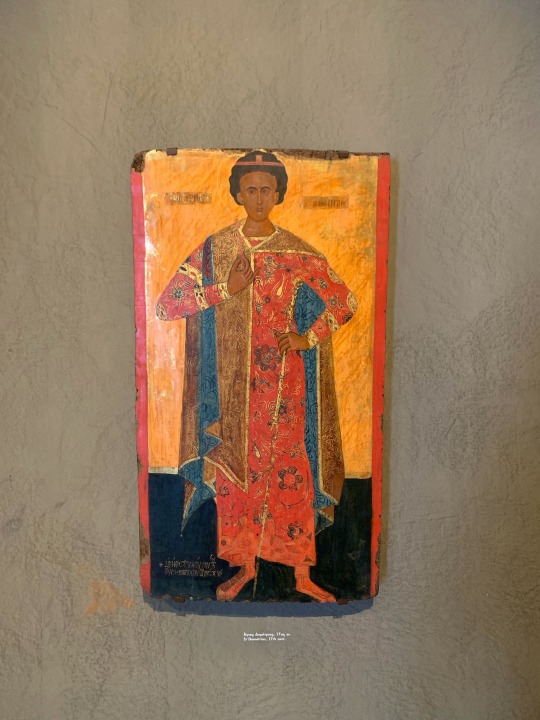
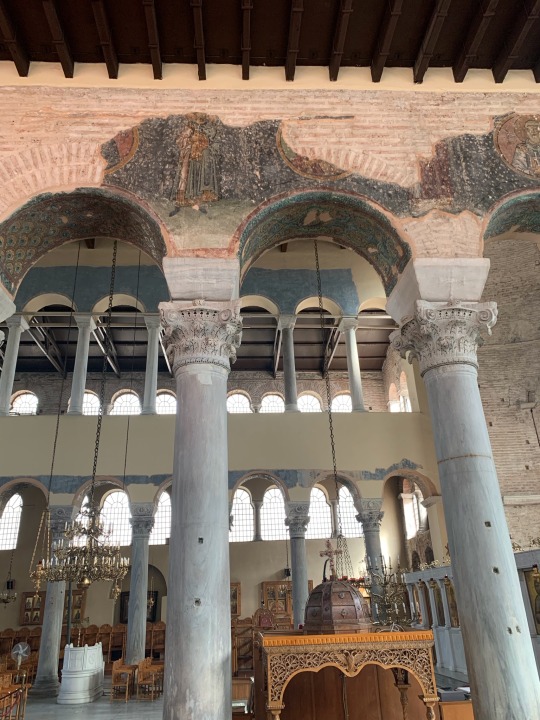
After that we had a very nice coke and water in a cafe outside another museum which was needed as we were thirsty and it was very refreshing (as it was still pretty hot). We then walked up towards the flat. On the way I bought a hat, which was good because I had been looking to buy a hat for a while because the one I have is not very nice (although it is very useful and washable). We had another coffee and went back to the flat and chilled out for a bit.
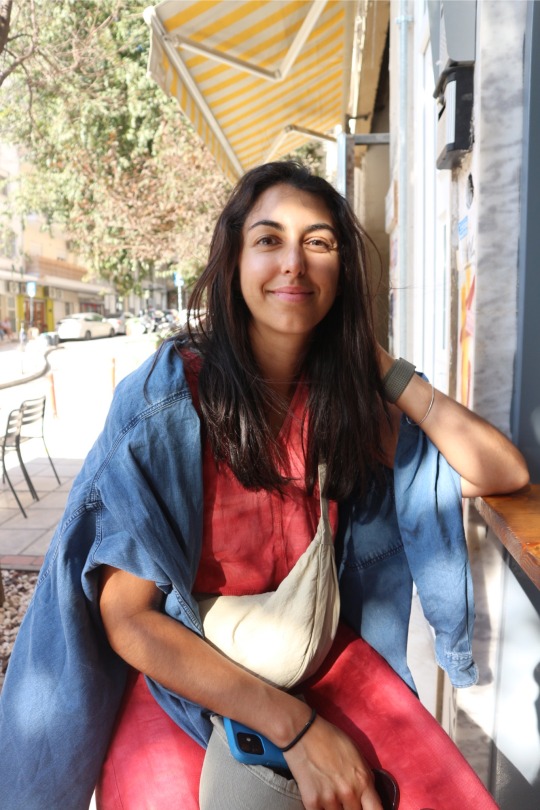

We then got up again and went up to the top of the hill behind us where some of the old walls are. There was a lovely view over the whole town which was great. After that we went to a tavern called Iggis which we had heard from the same article, which was actually delish, it was in a nice setting and we had some great food and some lovely wine. After that we walked back to the flat and chilled out.
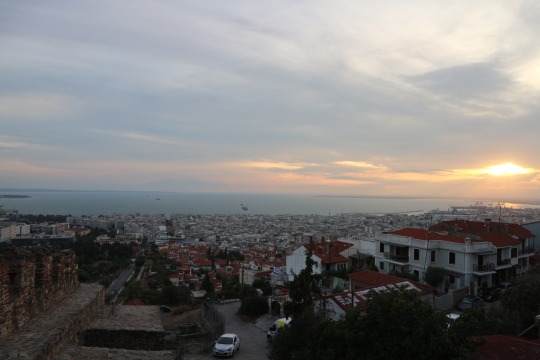
Where we ate - Local, Iggis
What we liked - Local - not very good, quite expensive an disappointing, Iggis - really nice, we had a some white tarama, and fava beans, as well as a salad of wilted spinach leaves with mint and lemon which was lovely. I then had a beef and smokey aubergine dish and Nin had a great pork neck grilled, there were great chips too!
0 notes
Text
Discover the Wonders of Turkey with a 10-Day Tour Package
Are you dreaming of a perfect vacation that combines history, culture, stunning landscapes, and unforgettable experiences? Look no further! Istanbul Local Guides presents an exclusive 10-day Turkey tour package that will take you through the highlights of this beautiful country, offering you a truly immersive and memorable journey.
Why Choose Turkey for Your Next Adventure?
Turkey, a land where East meets West, is a treasure trove of historical wonders, breathtaking natural beauty, and rich cultural heritage. Whether you are a history buff, a nature lover, or someone seeking authentic experiences, Turkey has something for everyone. From ancient ruins to modern cities, stunning coastlines to mystical landscapes, this country offers a unique blend of old-world charm and contemporary allure.
What to Expect from the 10-Day Turkey Tour
Day 1: Arrival in Istanbul
Your journey begins in the vibrant city of Istanbul, a bustling metropolis that straddles two continents – Europe and Asia. Upon your arrival, you'll be greeted by our friendly guides and transferred to your hotel. Take the rest of the day to relax or explore nearby sights like Taksim Square or the vibrant Grand Bazaar.

Day 2-3: Exploring the Wonders of Istanbul
On your first full day, dive into the cultural and historical heart of Istanbul. Visit iconic landmarks such as the Hagia Sophia, Blue Mosque, Topkapi Palace, and the Basilica Cistern. Don’t miss the Bosphorus Cruise for a scenic view of the city from the water. Take in the colorful spice markets and indulge in traditional Turkish delights.
Day 4: Discovering Gallipoli
Travel to the historic Gallipoli Peninsula, a place of immense significance for both Turkey and the international community. Pay your respects at Anzac Cove and other key memorial sites while learning about the events of World War I that shaped this region.
Day 5: Troy and Pergamon
Step into ancient history with a visit to the legendary city of Troy, made famous by Homer’s Iliad. Afterward, explore the ruins of Pergamon, an ancient city known for its impressive architecture and historical importance.
Day 6-7: The Ancient City of Ephesus
Wander through the stunningly preserved ruins of Ephesus, one of the most significant Greco-Roman cities in the world. Marvel at the Temple of Artemis, Library of Celsus, and the massive Theatre of Ephesus. Spend the evening soaking in the serene atmosphere of the House of the Virgin Mary.
Day 8: Pamukkale and Hierapolis
Prepare for a visual treat as you visit Pamukkale, known for its surreal white terraces and natural thermal pools. Explore the ancient city of Hierapolis, and if you’re feeling adventurous, take a dip in the mineral-rich waters.
Day 9: The Magic of Cappadocia
Fly to the mystical land of Cappadocia, renowned for its fairy-tale landscapes, cave dwellings, and hot air balloon rides. Explore Göreme Open-Air Museum, marvel at the towering rock formations, and walk through the stunning valleys dotted with ancient churches and monasteries.
Day 10: Departure
After a magical journey through Turkey, your trip ends back in Istanbul. Bid farewell to your fellow travelers and take home unforgettable memories of this incredible country.
Why Book with Istanbul Local Guides?
At Istanbul Local Guides, we believe in creating personalized and authentic travel experiences. Our local guides are passionate about sharing Turkey's rich history, culture, and hidden gems. With us, you can expect:
Expert Local Knowledge: Our guides are not just tour operators; they are local experts who provide deep insights into Turkey’s heritage.
Customized Itineraries: We tailor each tour to meet your preferences and ensure you make the most of your trip.
Comfort and Convenience: Enjoy stress-free travel with pre-arranged transportation, accommodations, and entrance fees to all attractions.
Safety and Comfort: We prioritize your safety and comfort, ensuring that every aspect of your tour is well-organized and enjoyable.
A Journey You’ll Never Forget
The 10-day Turkey tour by Istanbul Local Guides offers the perfect blend of history, culture, nature, and adventure. Whether it's exploring the vibrant streets of Istanbul, walking through ancient ruins, or enjoying the ethereal beauty of Cappadocia, each day will bring new surprises and lasting memories.
Book your 10-day Turkey tour today and embark on a once-in-a-lifetime journey through one of the world's most fascinating countries!
0 notes